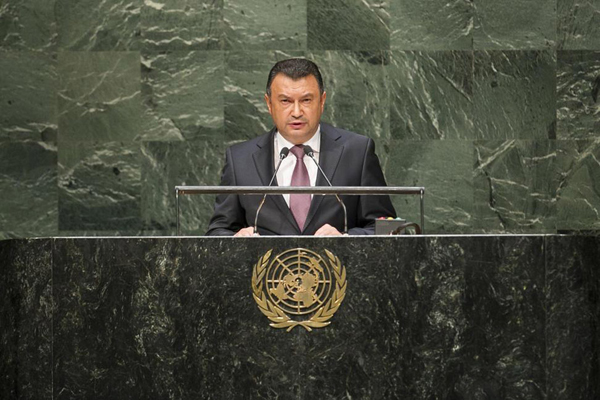
“Global climate change, ever increasing growth of economies and population, degradation of water sources and deterioration of quality of water resources pose additional and comprehensive tasks for the international community,” he said.
Tajikistan has been consistently increasing its efforts to maximize its capacity to achieve the MDGs. Water management must be regulated based on the principle of co-development. Moving on to energy, Prime Minister Rasulzoda said his country focused on expanding access to modern and affordable sources by developing small to medium-scale hydropower stations and exploring opportunities for the use of wind and solar energy.
Extra measures have also been undertaken to create a favourable climate for investment, balanced budget policy, diversification of the economy and employment. Rasulzoda pledged that his country will take lessons it has learned during MDG implementation as it moves ahead.
But first, it would be important to address the region’s illicit drug production. In recent years, the Central Asian nation has taken steps to combat drug trafficking including through the establishment of a Drug Control Agency. More must be done, however, to support “fraternal Afghan people” to address their current and upcoming challenges and also include them in regional processes.
Prime Minister Qohir Rasulzoda of Tajikistan addresses the General Assembly. UN Photo/Kim Haughton
Support Our Journalism
We cannot do without you.. your contribution supports unbiased journalism
IBNS is not driven by any ism- not wokeism, not racism, not skewed secularism, not hyper right-wing or left liberal ideals, nor by any hardline religious beliefs or hyper nationalism. We want to serve you good old objective news, as they are. We do not judge or preach. We let people decide for themselves. We only try to present factual and well-sourced news.







